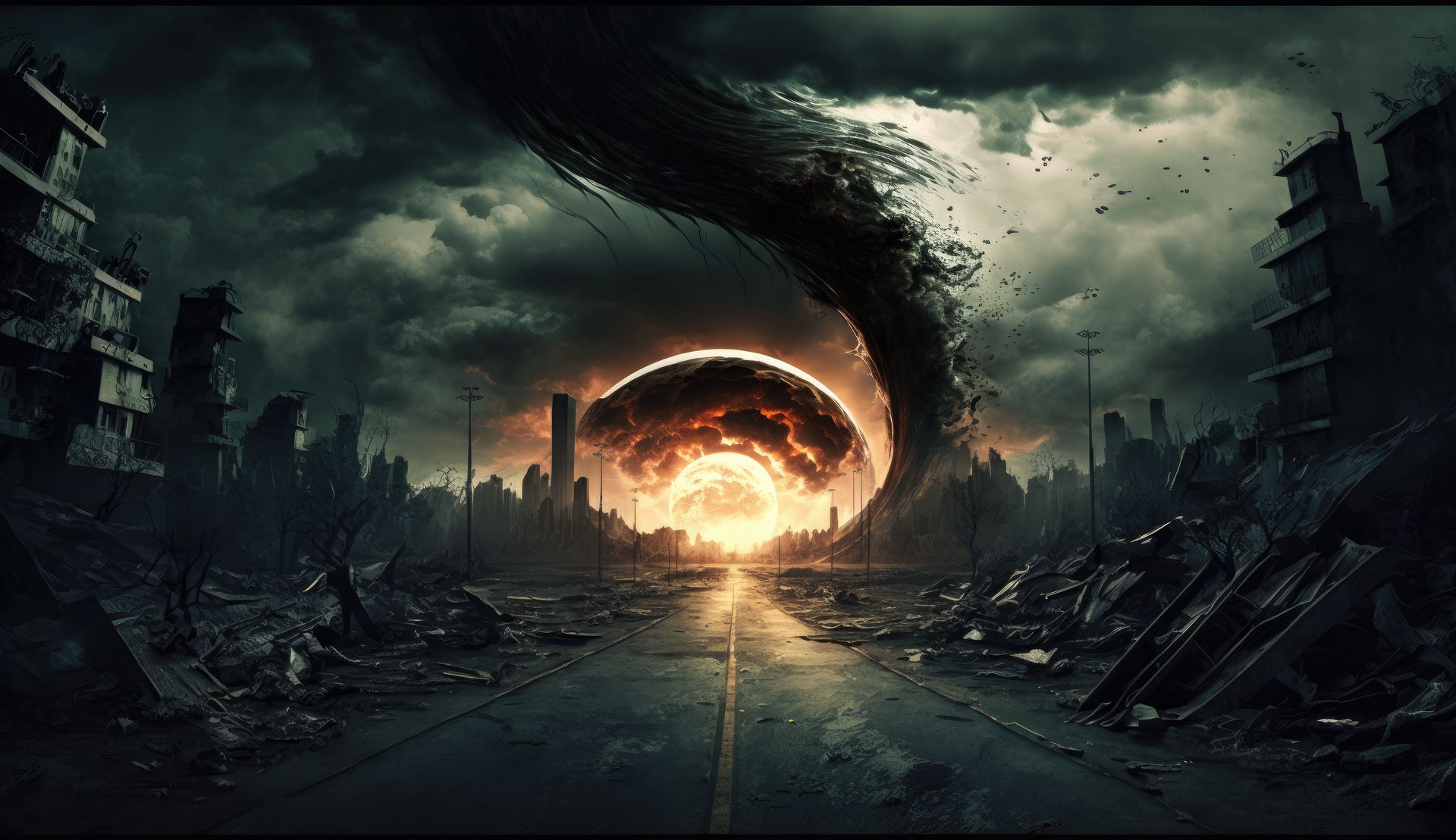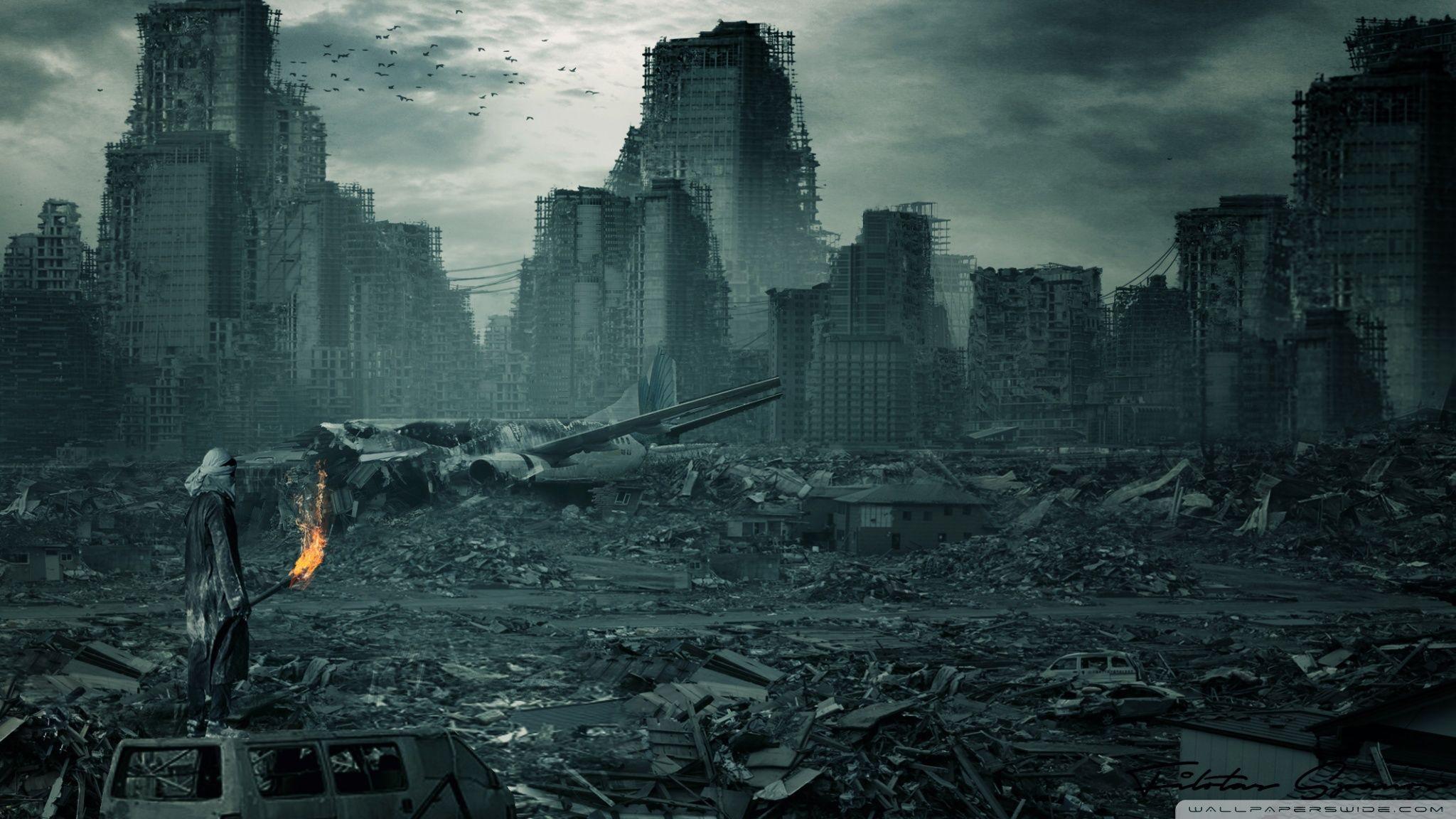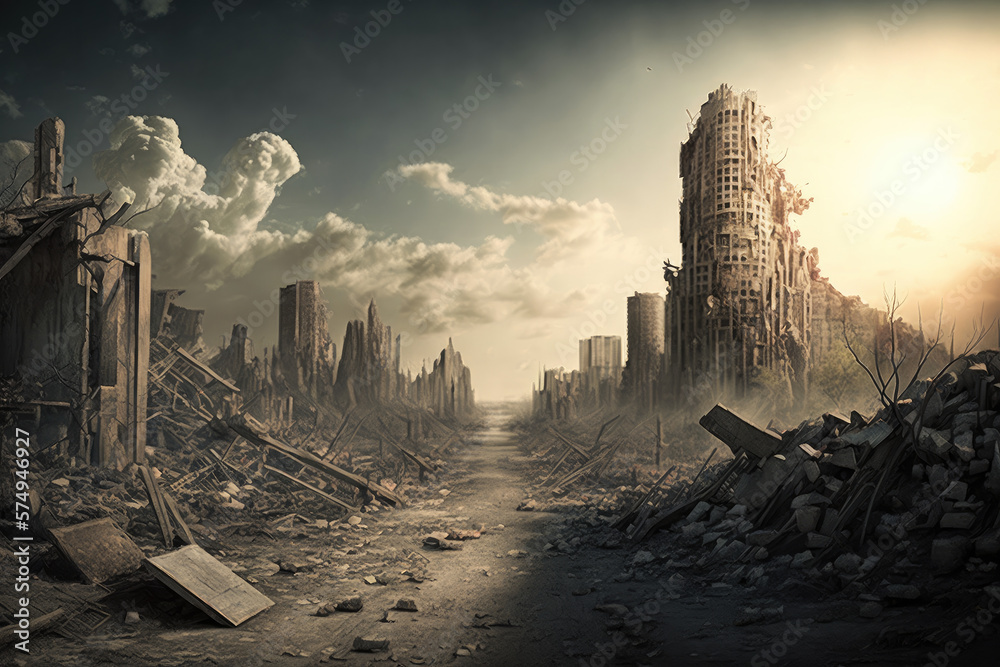AI-Generated Content
This article has been created using advanced AI technology to provide you with informative and engaging content.
AI-Curated Resources:
When we talk about an "apocalypse fest," we are really looking at a chance to unpack some very deep ideas, you know, concepts that have been around for a very long time. This gathering, in a way, brings together thoughts about what 'apocalypse' truly means, going back to its original sense of 'revelation' or 'uncovering' — a kind of revealing of things that were hidden. It's about pulling back the curtain on these big, powerful ideas that have shaped so many stories and beliefs, and perhaps even our present-day worries, so it's almost like a shared moment of looking closely at old writings.
The original meaning of 'apocalypse' comes from some very old Jewish and Christian writings, dating back to around 200 years before the common era, and continuing up to about 150 years into it. These texts, you see, were often written under different names than their actual authors, using a lot of pictures and symbols to get their message across, and they often spoke about a big, cosmic event that was expected to happen very soon. An 'apocalypse fest' could be a place where people get together to think about these old texts and what they might have been trying to tell us, which is that there's a deeper message to uncover.
So, when we consider an 'apocalypse fest,' we're thinking about a place where people can really dig into what that word means, not just as a scary event, but as a "revelation, disclosure, uncover, reveal." It's about getting to the bottom of things, taking a closer look at what these ancient ideas suggest, and perhaps finding new perspectives on them. It’s a space, basically, for open discussion and a shared quest for insight into these profound and sometimes unsettling concepts that have been passed down through generations, and that, you know, is something quite special.
- Amina Hachimura
- Colt Mccoy Career Earnings
- Celebrity Crushes Guys
- David And Rebecca Muir Wedding
- Edith Mack Hirsch
Table of Contents
- What does "apocalypse" actually mean?
- Exploring the Jewish and Christian Roots of Apocalypse Fest
- What are the biblical signs of the end, as discussed at an apocalypse fest?
- The Seven Signs Uncovered for Apocalypse Fest
- How is "apocalypse" understood beyond the Bible at an apocalypse fest?
- Apocalypse Fest - Prophecy and Symbolism in Christian Texts
- What is the "Book of Revelation" and its place in an apocalypse fest?
- Early Development and Unfolding at Apocalypse Fest
What does "apocalypse" actually mean?
The word "apocalypse" often brings to mind images of dramatic destruction, a kind of world-ending event that changes everything. But, you know, if we look at where the word actually comes from, its initial sense is much more about bringing things into the open. According to many sources, including dictionary definitions, it points to a "revelation," a "disclosure," or the act of "uncovering" something that was hidden from view, or "revealing" a truth. So, it's not just about an ending, but very much about a new beginning of sorts, where things become clear. This idea, basically, shapes how we might think about an 'apocalypse fest' as a place where these kinds of revelations are sought after, a place for finding out more.
When we hear the word, we might typically picture something really serious, a happening that brings about a lot of ruin and big changes. It’s often used to describe events that cause widespread fear, a sense of deep loss, or utter destruction. Yet, at its core, as some old texts show us, it's about making things known. So, an 'apocalypse fest' could be a place where we try to make sense of these ideas, to see what they might reveal about human nature or the world around us. It’s about taking a moment to consider what it means to uncover something truly significant, even if that something is a bit unsettling, and that, you know, is a different way of looking at it.
The term "apocalypse" is most commonly connected to the Book of Revelation, which is the very last book in the New Testament. Its Greek name, Ἀποκάλυψις, or 'apokalypsis,' literally means "an uncovering" or "a revealing." However, people use the word 'apocalypse' more broadly too, to talk about any kind of big, sudden disaster that causes a lot of trouble. An 'apocalypse fest' could then become a spot where people discuss both the specific meanings found in that particular book and the wider, more general ideas of big changes and surprising disclosures. It’s a chance to consider both the small details and the bigger picture, which is pretty interesting, if you ask me.
Exploring the Jewish and Christian Roots of Apocalypse Fest
The early writings that speak of apocalypse, as we mentioned, come from Jewish and Christian traditions, written between about 200 years before the common era and 150 years into it. These old texts often used a trick where they were written under a false name, giving them a kind of mystery, and they were full of pictures and symbols, not plain statements. They also carried a strong feeling that a big, world-changing event was just around the corner, a cosmic shift that would happen very soon. An 'apocalypse fest' could really shine a light on these particular features, helping people to see how these old ways of writing shaped the messages they carried. It’s a chance to look at how people in those times imagined the future, which is, you know, quite a thought.
These ancient texts are not always easy to figure out because of their special language and hidden meanings. They often talk about things that are beyond what we can usually see or touch, like heavenly signs or spiritual battles. For an 'apocalypse fest,' this means there's a lot to talk about and try to make sense of. People might gather to share their thoughts on what these symbols mean, or how the idea of an immediate, big change affected the people who first read these writings. It’s about getting a sense of the feeling and the ideas that came from those early periods, and that, you know, is a bit like being a detective of old stories.
So, when we think about the roots of the word, it's tied to these very specific kinds of writings that aimed to reveal something important about the future or about unseen forces. The 'apocalypse fest' then becomes a place where we can collectively explore this rich background. It’s a space for people to bring their own questions and insights, helping to uncover the layers of meaning in these historical documents. This shared investigation into the past can, in some respects, help us think about our own present and future, and it's something that really makes you think.
What are the biblical signs of the end, as discussed at an apocalypse fest?
Many people are curious about what the Bible says about the end of things, and there are specific mentions of signs that are meant to appear. You can find discussions about seven and even twelve biblical signs of the apocalypse, particularly those described as heavenly signs in the book of Revelation. At an 'apocalypse fest,' people might gather to learn what these signs are supposed to mean and how, according to Christian teachings, people should respond to them. It’s a chance to really dig into these prophecies and consider their impact on belief and behavior, which is a big topic, really.
These signs are often spoken of as events that would mark a significant period of change or a final unfolding of events. The conversations at an 'apocalypse fest' could revolve around interpreting these specific mentions, trying to figure out what they might represent symbolically or what they might have meant to the people who first wrote about them. It's about looking closely at the text and thinking about how these ancient predictions connect with broader ideas of societal change or personal transformation. So, it's a very thought-provoking kind of discussion, you know, for anyone interested in these old stories.
The idea of these signs appearing is a central part of many people's understanding of the apocalypse. An 'apocalypse fest' would offer a chance to hear different viewpoints and share personal reflections on these powerful symbols. It's a place where people can feel free to ask questions about what these signs mean for today, or how they might have been understood in different times. It’s about engaging with a part of history and belief that has had a truly big impact on human thought, and that, you know, is something worth exploring.
The Seven Signs Uncovered for Apocalypse Fest
The book of Revelation in the Bible talks about seven specific signs of the apocalypse. These are often discussed in detail, and an 'apocalypse fest' could be a perfect setting for such conversations. The signs include the arrival of a figure known as the antichrist, which is a figure thought to oppose goodness. Then there's the presence of war, which brings about much fighting and destruction, causing a lot of trouble. Famine is another sign, meaning a time when there isn't enough food for people, leading to great hardship. Plague also appears on the list, referring to widespread sickness that affects many people, which is pretty scary, actually.
Following these, there's the idea of judgment, a time when deeds are weighed and consequences are faced. Chaos is also mentioned, suggesting a period of great disorder and confusion, where things might seem to fall apart. And finally, there's silence, which some interpret as a pause or a moment of quiet before or during significant events. An 'apocalypse fest' would provide a space to look at each of these signs individually, to think about what they mean, and to consider how they have been understood through the years. It’s a chance to really unpack these powerful images, and that, you know, can be quite enlightening.
For each of these seven signs, there's a lot to consider. For instance, what does the 'antichrist' represent, beyond a single person? How does 'war' as an apocalyptic sign differ from everyday conflicts? What does 'famine' or 'plague' mean in a global sense? And what kind of 'judgment' or 'chaos' are these texts referring to? The 'apocalypse fest' would be a place where these questions could be openly discussed, where people could share their own thoughts and insights, and where different interpretations could be explored without judgment. It’s about a shared journey into understanding these profound concepts, and that, in a way, is a very human thing to do.
How is "apocalypse" understood beyond the Bible at an apocalypse fest?
While the Bible is a key source for the term, the word "apocalypse" has also taken on a broader meaning in everyday language. It's often used to describe a very serious event that results in great destruction and brings about major changes. Think of it as a sudden, very bad happening that causes a lot of fear, widespread loss, or massive ruin. An 'apocalypse fest' might also explore these more general uses of the word, going beyond just religious texts to consider how society talks about big, world-altering events. It’s about looking at the word's wider impact and how it shows up in our collective imagination, which is quite interesting, really.
People use "apocalypse" to describe the end or destruction of the world, especially in stories or movies, or as it's sometimes described in ancient writings. It's a word that carries a lot of weight, suggesting something truly catastrophic. At an 'apocalypse fest,' discussions could extend to these more modern or secular interpretations. How do different cultures imagine the end of things? What kinds of events do we, as a society, label as 'apocalyptic'? It’s a chance to consider how the core idea of a big, transformative event shows up in many different forms, and that, you know, opens up a lot of conversations.
So, the 'apocalypse fest' wouldn't just be about ancient scriptures; it would also be about how these ideas have seeped into our common language and understanding. It's about looking at the word 'apocalypse' as a concept that describes any huge, devastating event that reshapes the world as we know it. This broader perspective allows for a richer and more inclusive conversation, bringing in ideas from various fields and viewpoints. It's a chance to see how a very old word still holds a lot of power in how we talk about our fears and hopes for the future, and that, basically, is pretty cool.
Apocalypse Fest - Prophecy and Symbolism in Christian Texts
When we look at the meaning of apocalypse, especially as it connects to symbolism and prophecy in the Christian Bible, there's a lot to unpack. These texts are full of hidden meanings and predictions about future events, often presented through powerful images rather than plain language. An 'apocalypse fest' could be a place where people really dig into these symbolic layers, trying to figure out what the prophecies might mean and how they were understood by early believers. It’s about getting a sense of the deeper messages that are woven into these old stories, which is, you know, quite a challenge.
There are a number of anonymous Jewish or Christian texts, dating from around the second century before the common era to the second century after, that contain prophetic or symbolic visions. These visions often spoke of things that were expected to happen very soon. At an 'apocalypse fest,' people might spend time looking at these particular writings, exploring the kinds of visions they describe and the messages they tried to convey. It’s a way to connect with the historical context of these ideas, seeing how they developed over time and what they meant to the people who first encountered them. So, it's a bit like time travel through old books, actually.
The symbols used in these texts can be very rich and complex, representing everything from political powers to spiritual forces. For instance, a beast might represent an empire, or a star might represent a person. An 'apocalypse fest' would be a fantastic place to discuss these symbols, to share different interpretations, and to think about why these particular images were chosen to convey such weighty prophecies. It’s about understanding the language of prophecy and how it shapes our thoughts about big, future events, and that, in some respects, is a very important part of the conversation.
What is the "Book of Revelation" and its place in an apocalypse fest?
The term "apocalypse" very often refers directly to the Book of Revelation, which is the very last book of the New Testament. This book is a central piece when people talk about end-time prophecies and visions of the future. At an 'apocalypse fest,' this particular book would likely be a major point of focus, perhaps with discussions dedicated to its contents and various interpretations. It’s a chance to really explore the text that has given the word "apocalypse" so much of its powerful meaning, and that, you know, is a big part of why we even have this word.
The Book of Revelation, with its Greek name 'Apokalypsis,' is, as we've said, all about "revelation" or "disclosure." It describes a series of visions that reveal what is to come, often in highly symbolic ways. For an 'apocalypse fest,' this means there's a lot of material to go through, from the opening letters to the churches to the descriptions of heavenly scenes and earthly events. People might gather to read passages aloud, to discuss their personal thoughts on what they mean, or to hear from others who have spent a lot of time studying this specific book. It’s about a shared journey into a text that has truly shaped a lot of beliefs, and that, basically, is pretty cool.</
AI-Enhanced Visual Content


